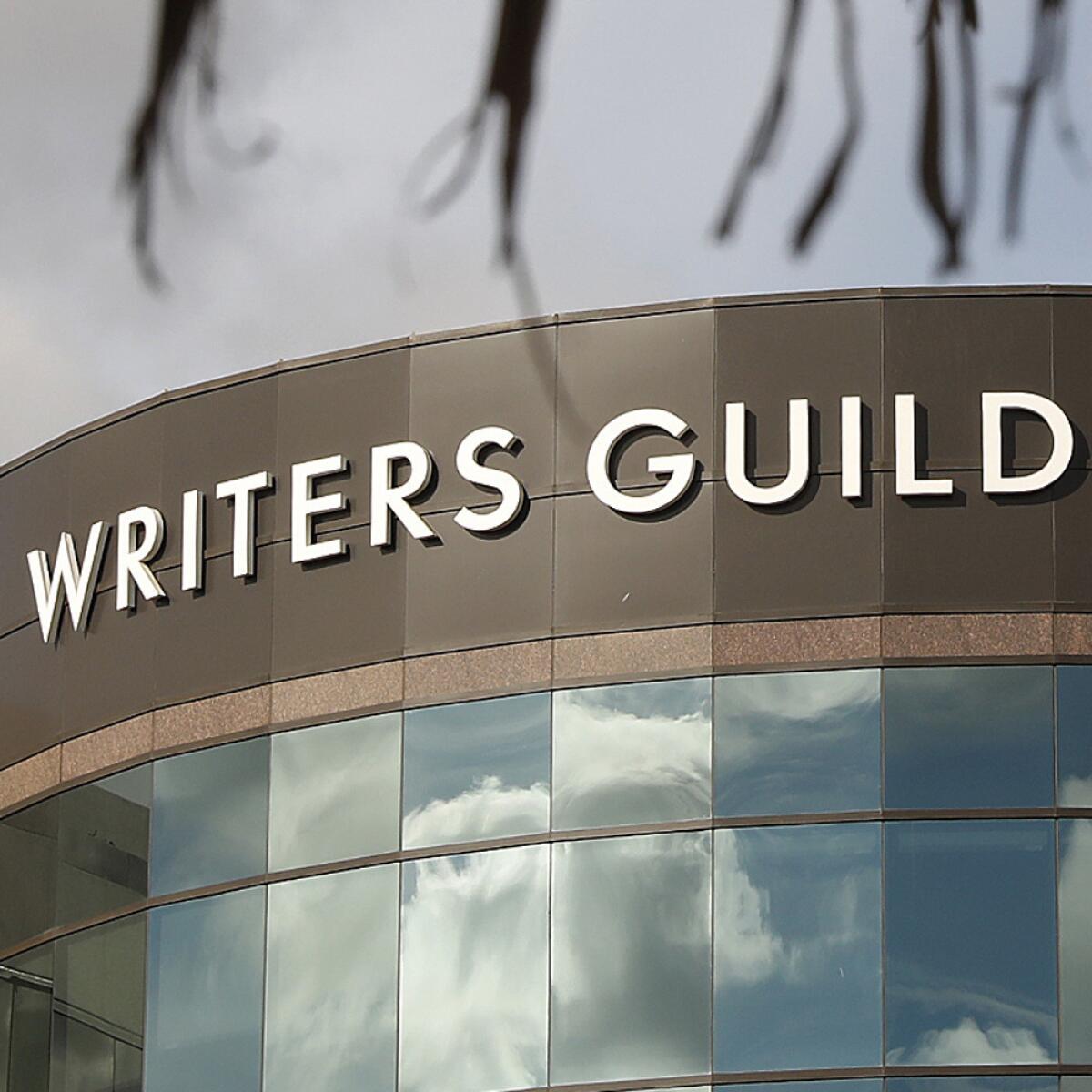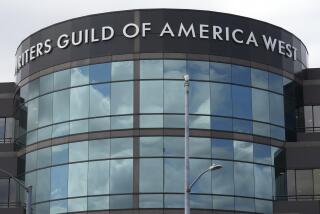WGA drops demand for studios to only work with guild-approved agencies

- Share via
As the Writers Guild of America readies itself for negotiations with major studios, the union is making a significant tweak to its list of demands.
The WGA will no longer push to require studios to exclusively work with talent agencies that have agreed to its terms, the union told members last week.
Guild leaders, including Shawn Ryan, the co-chair of the union’s negotiating committee, discussed the change in strategy at a meeting on Friday with dozens of showrunners at the W Hotel in Hollywood as part of the union’s outreach, according to three people familiar with the meeting who were not authorized to comment.
The change comes after some guild members voiced concerns about inserting the agency issue into potentially contentious negotiations with the major studios that are expected to be dominated by streaming and other issues.
The fight with agencies erupted in April when the guild ordered its members to fire their agents in protest over packaging and other industry practices deemed harmful to writers.
The standoff has put showrunners in a tricky position. As writers who are also producers, they need large agencies to help staff their shows. Many doubted the studios would ever agree to the union’s demand that they only work with approved agencies, and have been frustrated by the lack of progress in talks with agencies.
“It’s a different ballgame if you are trying to develop” a drama, said one working writer who declined to be named for fear of retribution. “Writers don’t walk into a studio and get a green light, or at least most don’t. You need other elements attached to the project, and big agencies can do that for you.”
But the union has told members they must not work with non-franchised agencies, which include Creative Artists Agency, William Morris Endeavor, United Talent Agency, ICM Partners and Paradigm Talent Agency, and that those who violated the union’s rules would be investigated.
WGA West President David Goodman renewed that message during Friday’s meeting, telling showrunners they could anonymously report writers whom they suspect may be going back to work with non-WGA franchised agencies, according to one member who attended the meeting.
“I understand that it’s frustrating for those of us who are abiding by the rules when other people are not, but I think this is despicable to ask us to inform on one another,” said a showrunner who attended the meeting and who asked not to be identified for fear of reprisals. “This is not something that is a good look for the WGA.”
A representative of the WGA was not immediately available for comment. Representatives of the ATA and the Alliance of Motion Picture and Television Producers declined to comment.
The WGA has allowed showrunners to continue to work with major agencies in their capacity as producers and directors, but not writers. These major agencies have not signed deals with the WGA and several have sued the WGA in federal court. The trial could begin March 2021. The guild has also sued major agencies over the dispute.
WGA members may work only with the union’s more than 80 franchised smaller or mid-tier agencies, which may not have as many A-list actors and actresses as major agencies do.
It has been an open secret in Hollywood that some WGA members have defied the union’s rules and have gone back to their agents. No one knows how many have done so; estimates vary widely from a from a few dozen to several hundred.
In a recent message to its members, the WGA touted that the campaign against the agencies has made the union stronger and that it has had “substantive discussions” with four of the five major agencies. Representatives of CAA, UTA, WME and ICM have said they are not in discussions with WGA.
“We continue to place pressure on them, by pursuing the lawsuit, by negotiating with the smaller agencies, and by withholding their ability to represent writers,” Goodman wrote in the note to members. “The goal remains in sight: to realign all our representatives’ financial interests with their writer clients by ending packaging fees and curtailing agency ownership of production.”
On Friday, the guild said in an email to members it has provided guidance on more than 100 deals involving its writer members, helping them get more money. In one example, a writer received a pilot fee that was $125,000 more than the company’s first offer, the guild said.
More to Read
Inside the business of entertainment
The Wide Shot brings you news, analysis and insights on everything from streaming wars to production — and what it all means for the future.
You may occasionally receive promotional content from the Los Angeles Times.











